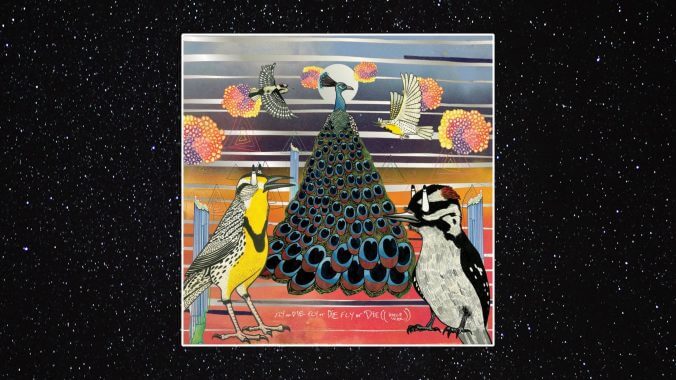No Album Left Behind: jaimie branch: Fly or Die Fly or Die Fly or Die ((World War))
The late trumpeter’s third studio album is a joyous, curious and experimental posthumous masterpiece.

“jaimie never had small ideas. She always thought big,” goes the liner notes of her posthumous third album, Fly or Die Fly or Die Fly or Die ((World War)). “And this album is big. Far bigger and more demanding—for us, and for you—than any other Fly or Die record,” it continues. Such words feel like an understatement, given the enormous ambition that underpins branch’s final LP—a project that scales a gospel-tinged opener, a reworking of country-punk’s Meat Puppet’s “Comin’ Down,” a calypso celebration (“Baba Louie”) and a New Orleans-style political manifesto (“Take Over The World”).
The album’s two most impressive and expansive statements arrive via “Burning Grey” and “Baba Louie”—both of which clock in at over nine minutes, making them ((World War))’s longest tracks. The former begins with electronic modulations and drums that make way for the chest-thumping confidence of jaimie branch’s trumpet playing. “Burning Grey” quickly evolves into an ecstatic cacophony through which tales of paranoia and persistence are backdropped. “Watch your step, watch your step,” commands branch frantically, utilizing her trademark half-sung, half-chant vocal delivery.
Though “Burning Grey” never shies away from confronting the harshest elements of human nature (“Some people will tear your heart right out / Sell you and think nothing of it”), branch never succumbs to self-seriousness. Her arrangements remain euphoric; her warnings punctuated by animalistic howls (“ooooh, ooooh”); the message she ultimately lingers on is one of hope. In the wake of her untimely death in August 2022, the song only gains gravity—her cries of “I wish I had the time” arrive infused with even greater sorrow upon every listen. When branch delivers the song’s ultimate promise (“Believe me, the future lives inside us / Don’t forget to fight”), it can feel almost as if she is speaking from beyond the grave, passing on the baton of her creative excellence and radical spirit onto listeners—and to the next generation of creatives—more widely.
-

-

-

-

-

-

-

-

-

-

-

-

-

-

-

-

-

-

-

-

-

-

-

-

-

-

-

-

-

-

-

-

-

-

-

-

-

-

-

-








































